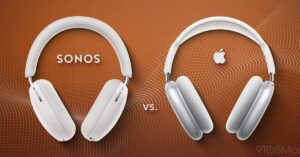MacBook Pro laptops on display at Apple’s Worldwide Developers Conference (Photo by JOSH … [+]
Update: May 19: The article was originally published on May 18.
With the launch of the new iPad Pro, Apple has shifted focus from the Mac platform to its tablet lineup. With an expansive screen, slim build, and portable keyboards, the iPad’s marketing promise that “your next computer isn’t a computer” seems tantalizingly close.
Update: Sunday, May 19: The challenge facing Apple as it tries to keep the iPad and the Mac platform separate was highlighted by Mark Gurman. Writing for the Power On newsletter, he argued that the two families of devices would be better served by expanding the differences and allowing the Mac and iPad to excel at what they individually do best:
“The Mac will always have more powerful chip options, bigger displays, a built-in keyboard and trackpad, fans for heavy workloads, more ports and better battery life. The iPad will always be much more portable, better for gaming, superior for watching video and a device that can capture photos and video. It’s time for Apple to make the iPad and Mac as capable as possible.”
Apple continues to try to bring the two systems closer together, allowing iPadOS apps to run on MacOS. Developers also have the ability to create universal apps that will work on any platform. Of course, the hardware may not be what the application expects; the Mac platform doesn’t have a touchscreen, while the iPad family doesn’t have a touchpad or physical keyboard, unless you’re willing to add to the iPad’s cost of ownership and buy new peripherals that offer these services.
At this point, after years of trying, the potential for a single platform still seems a long way off. If Gurma is right, it’s time for Apple to focus on the individual benefits of each device.
Apple iPad Pro seen in store in Krakow, Poland (Photo by Jakub Porzycki/NurPhoto via Getty … [+]
But Apple’s dogma around the iPad will hold back the tablet platform, even when the Mac platform can easily address the same problem…the flexibility of third-party apps.
Apple may have packed the iPad Pro with the new desktop-class M4 chipset months before it was expected to arrive in Mac hardware, but unlocking that chipset’s potential is a huge challenge. Those reviewing the latest iPad Pro note the M4 and that iPadOS isn’t the best environment. David Phelan of Forbes:
“As powerful as it is, in some ways it feels hindered by the software. Although iPadOS has changed significantly, with the introduction of Stage Manager to make using multiple apps smoother, nothing compares to macOS in this regard. The new Magic Keyboard is light and comfortable, making typing a dream, but it still doesn’t compete with a Mac laptop.”
The new iPad Pro models (Photo by Christoph Dernbach/Photo via Getty Images)
The biggest consideration, however, is the closed nature of iPadOS. Anything you want to do has to be cleared by Apple before it can run on a device. Distribution will be through the App Store only and all revenue generated will be subject to Apple’s thirty percent rake.
(There is a caveat for Europe, given that iPadOS is classified as a “gatekeeper” service and must take steps to comply with the Digital Markets Act and open up the platform. However, the process for an individual developer to do so is long and complex).
Compare that to MacOS. Although the Mac platform has an App Store, it is not the exclusive path to the platform. Although Apple has a payment system that can be used, no developer is forced to use this system. And there are no limits to what you can code and distribute on the Mac platform. To take a recent example, retro emulation apps have long been a staple of the Mac platform, but until recently Apple had a blanket ban on these types of apps on the iPhone and iPad. No matter how well coded they were, Apple didn’t find them suitable.
While arguments rage over elements like the interface, touchscreens, trackpads, on-screen keyboards, and cellular connectivity, the main advantage any Mac has over any iPad is the open nature of the system. If you want to do something on MacOS to use the full power of the chipset, there are no restrictions…unlike the iPad, where Apple watches your every move.
Now read the latest iPad, Mac and iPhone headlines in Forbes’ weekly roundup of Apple news…



